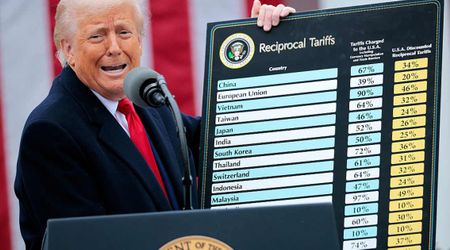27% Of Jobs at High Risk of Being Taken Away by Artificial Intelligence, Says OECD

The Organisation for Economic Cooperation and Development (OECD), a forum with a presence in over 38 wealthy nations and also a few developing economies, said that it's only a matter of time before AI will impact jobs in a significant way. More than a quarter of total jobs in the OECD countries rely on tasks that can easily be carried out by AI. The forum also said that the only reason AI isn't impacting jobs is that it's still in its preliminary stages, as per Reuters. The labor force susceptible to losing jobs because of AI stands at 27% as of now, the outlet reported. Jobs at the highest risk were defined as the people who use more than 25 of the 100 skills that the experts say can easily be carried out by AI.

Another survey conducted by the Paris-based organization found that at least three out of five workers were fearful of losing their jobs to AI, and this was conducted among 5,300 workers even before ChatGPT burst onto the scene in late 2022. Despite the downsides, two-thirds of the workforce says that they are working in sync with AI, and that has actually made their task less dangerous and tedious.
Post by @carnage4lifeView on Threads
Whether the benefits of AI outweigh the risks is still a thing for time to tell. OECD Secretary-General Mathias Cormannsaid that he believes that what will ultimately come out of the situation will depend a whole lot on the policy action they take. "Governments must help workers to prepare for the changes and benefit from the opportunities AI will bring about," he said.
Types of jobs AI might impact
Certain fields like customer service, insurance underwriting, research, and data entry are extremely likely to be automated to quite some extent in the coming years. Kai-Fu Lee who is an AI expert writes in her essay, "Accountants, factory workers, truckers, paralegals and radiologists — just to name a few — will be confronted by a disruption akin to that faced by farmers during the Industrial Revolution," Lee wrote. Another research report by McKinsey Global Institute suggests that both trained and blue-collar jobs will be affected by AI.
The benefits of having AI in the workplace
AI can be used to help perform tedious and repetitive jobs and also overall revision. Some say that the overall increased productivity can also result in shorter work hours which can be a piece of good news. The sales of robot waiters have been on the rise and many in the industry see them as a potential solution to labor shortages, as in the case of this Colorado restaurant with robot waitstaff. AI can also be used to translate incomprehensible data to something more digestible for humans to understand.

Will AI replace human jobs?
We don't want to be making conjectures and hence, here are both sides for you to decide.
Reasons why AI will not replace human jobs
The first and foremost reason that AI can never fully replace human jobs is that it lacks emotional intelligence. Smart business owners realize the importance of EQ and appeal and therefore realize the importance of human backing. The second reason is that AI cannot work without input and therefore human is required in the primary stage. Another major reason why AI cannot be left on its own is because AI needs to be fact-checked. In a very recent case, alawyer had to face a penalty because of AI's factual mistakes.
Reasons why AI may replace human jobs
While AI cannot completely replace humans, there's a good possibility that AI can take away some jobs that can be automated easily. The question is not if AI will replace jobs, rather it's about which roles AI take away and if your job role is in danger. Jobs that don't require high levels of social or emotional intelligence to perform can easily be done by AI.





















